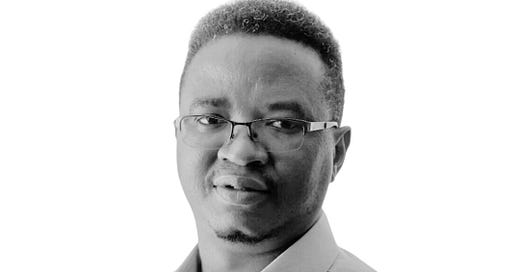Welcome to “Global Witness, Globally Reimagined.” You get a glimpse here of the kind of work that I do both at Church Mission Society and Missio Africanus where I help students of all levels (from unaccredited courses to PhD) explore the theological (and missiological) implications of the rise of World Christianity. In the newsletter, I focus on the subject of global witness in the context of the twenty-first century. Every Thursday, I share a thought that has spoken to me in the week, one or two resources that I trust will be helpful to you, and three exciting quotes about mission to give you something to think about as you go through your day. I pray one of these will energise you.
NB: Please note that I will soon start tailoring most of my content towards paid subscribers. There will still be occasional posts open to everyone, but most will be for paid subscribers. If you appreciate the newsletter and are able to pay for a subscription, please consider doing so.
1. Thought I Can’t Shake Off
An African student of mine reached out this week to reflect on last week’s newsletter because, as he put it, it spoke to the contextual realities of his ministry in a significant way. He was, however, bothered because I said that I was “trained for the ministry” in Africa but “educated for mission” in the West. He believed that his ministry training in Africa should also be recognised as “missions education” because, in his opinion, they are one and the same thing. Of course, he has a point. Most of the ministry training that goes on in Africa could easily also pass for mission training (not “education”) if — and only if — the ministry is to be carried out within Africa.
Of course, we did ministry training well back in the 90s in Africa. Discipleship often meant “ministry training” and it happened right within the congregation’s life situation (in its host society) and always included evangelism. Once one leaves Africa, no matter where one goes, some form of mission training is to be required because there is always a great deal of unlearning and new learning to do. The changes that are needed to be effective in a foreign context need careful reflection—ministry training designed for another place and time will be insufficient.
That conversation made me realise four key issues.
1. The democratised nature of the work of the Spirit means that all believers have to have some training for their part in the priesthood (of all believers). In Africa, such training makes it possible for what I call the evangelisthood of all believers.
2. Diaspora ministry leaders need a contextually relevant form of mission training to be effective in their ministries. But that is needed for everyone, not only Africans. I would argue that in Europe, all Christian leaders need some mission training, including Europeans themselves. This is a huge paradigm shift but it is absolutely necessary.
3. Ministry training ought not to be separated from missional formation and the two must provide the foundations for theological education. Otherwise, we end up with students who have some theological knowledge but little ministry training, having gained neither missional imagination nor the relational skills needed for the ministry in the process.
4. In all this, context is the most important thing. We must train for a specific context and trust that the skills attained will be adaptable when students move to other contexts. There is no one-size-fits-all training for the ministry.
2. Resources I am Enjoying
Podcast: The Missiology Podcast: A Conversation with Timothy Park
On this episode of The Missiology Podcast, Martin Rodriguez sits down with Timothy Park, (who teaches Asian Missiology at the Fuller Theological Seminary). Here, Park reflects on his journey as a missionary both on the field and in the academy. He highlights his fifteen-year missionary work in the Philippines. With the benefit of hindsight, Park evaluates his approaches and acknowledges some failures as well as successes. I believe we have a lot to learn from Park’s well-rounded missionary journey, having participated on the field and in the classroom, where he continues to make an impact in seeing God’s mission properly engaged.
3. Quotes I am Pondering
… incarnation or translation is not the ultimate mandate of the mission, but conversion and comprehensive transformation is. — Thang Deih Lian
… mission is sustained by a conscious and responsible focus on identity. — Mary Sylvia Nwachukwu
As the Father sent the Son, so now the Son sends his disciples into the world, not to do what only the Son could do, but to carry forth the message of what the Son did. We are able to do this by the Spirit, who the Son promised to send. — Paul Danbaki Jatau
I pray that you will be faithful to the mission God has for you this week.




Harvey, where did the Thang Deih Lian quote come from?